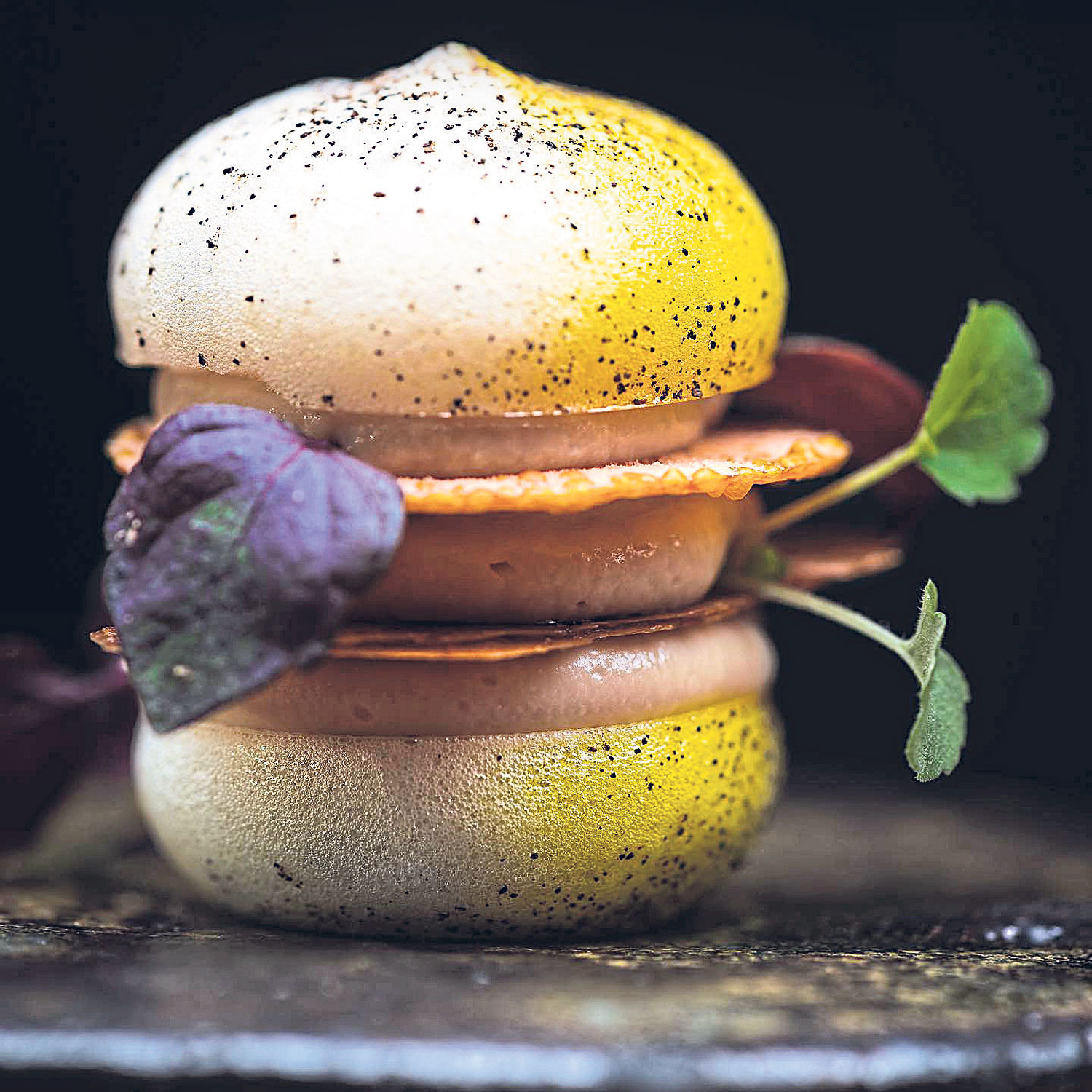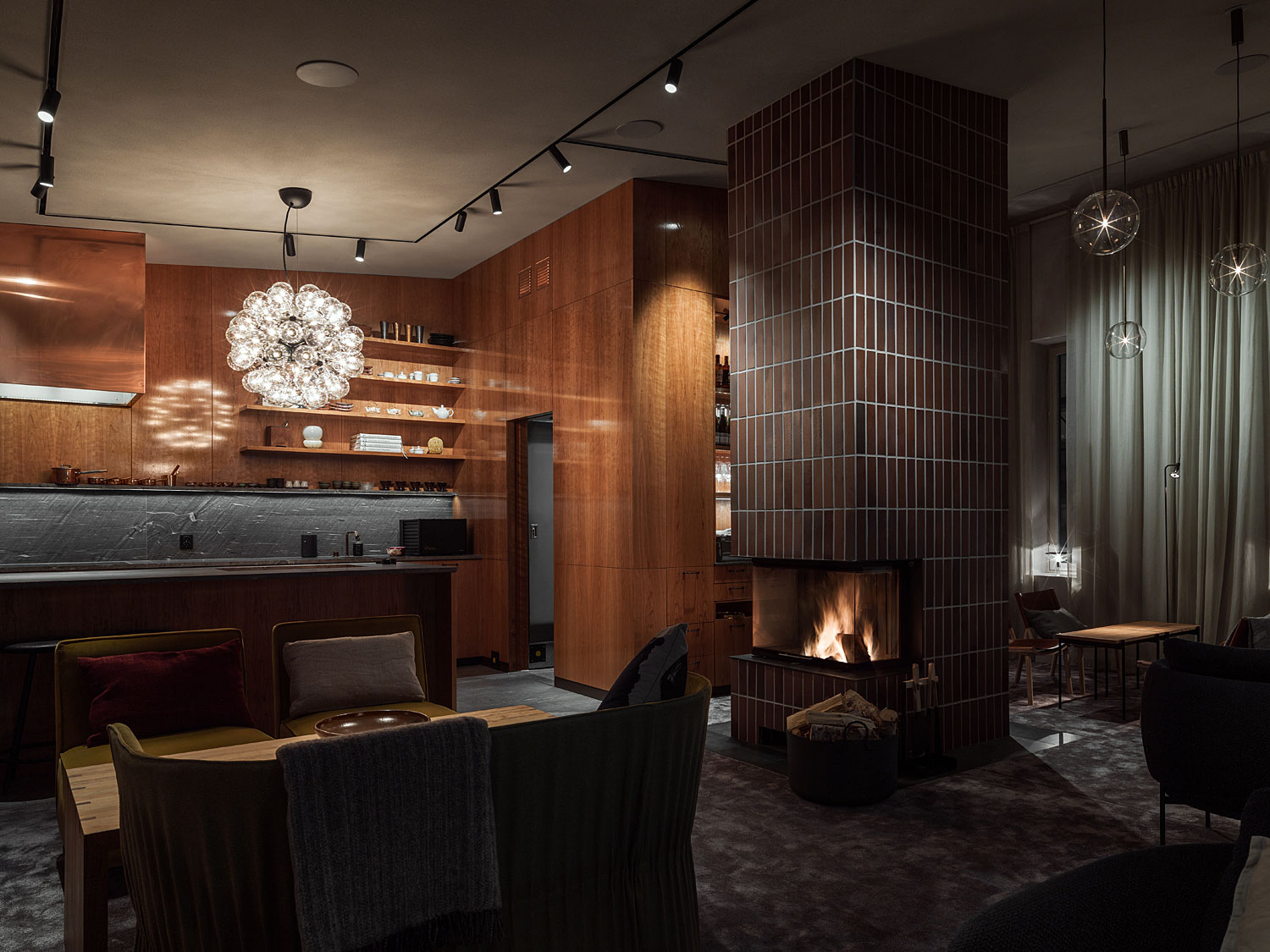Frantzén is no stranger in Asia, and more so Bangkok, considering Villa Frantzen was the most anticipated restaurant opening in 2022.
Chef Björn Frantzén, man behind the Frantzén Group around the world, was a professional football player for five years before his passion for the kitchen took over. Having later enrolled in culinary school and becoming a chef in the Swedish army, chef Frantzén kicked off his career in restaurants like the two Michelin-starred Le Manoir aux Quat’Saisons in Oxfordshire, England, and Alain Passard’s three Michelin-starred L’Arpège in Paris, specialising in classic French cuisine.
In 2008, he co-founded Frantzén/Lindeberg restaurant in Stockholm, Sweden, with the restaurant earning its first Michelin star in 2009, followed by a second star in 2010. In 2013, the restaurant was renamed Frantzén after business partner Daniel Lindeberg exited.

Chef Björn Frantzén.
“My food philosophy is simple. The food has to be tasty, it has to taste good. It is a mixture of where I come from, which is the Nordic region, Sweden. My background is French cooking and I mix it all up with Asian and especially Japan for lightness and umami,” explains the chef.
Japan plays a huge part in his cuisine, especially its kaiseki cuisine.
“Kaiseki is the mother of all tasting menus; how they conduct the kaiseki menus. There were no tasting menus in Europe before the French discovered the kaiseki. But I actually think, in some ways, they destroyed the beauty of eating multiple courses because they added too much gluten, fat and lactose. What I’m doing is going back to the origin of eating courses in a row. For me it all just made sense; the lightness of it,” states the chef, emphatically.
“Having said that I use French techniques in my cooking but a lot less of the gluten, fat and lactose compared to the French. In some parts of the Nordic region, this is also the way of cooking, a way of life. That’s why I think also the Scandinavian style goes with the Asian style. They match very well.”

Macaron — bird’s liver, saffron, dates and caramelised citrus.
The Frantzén Group is known for its “relaxed elegance” style of dining, with lagom, the Swedish word for balance in everything, being at the forefront. “I can’t explain it more than: it is tasty food. I use some Swedish recipes but the problem with this sort of old heritage recipe is that it’s very heavy because when those recipes were created, the winters were very long and hard. People needed to preserve food and people were working outdoors in the fields and in the forest for 16 hours a day. They needed to eat a lot more carbs than we need to nowadays. So yeah, we take inspiration from it, but we need to lighten it so much.”
His namesake restaurant, the flagship of the group, relocated in 2017 and is the apex of his vision. “My dream was to open a restaurant that felt like being invited to my apartment. Our goal was to create an overall experience such as never had been experienced before.” Despite the new restaurant being nearly five times the size of the old and spread across three floors, the covers remain the same as the original Frantzén.
“That’s for a couple of reasons. The most obvious being is that we can’t fit more in. The dining room is still fairly small in a new space even though it’s almost 600m², but we have separated it into different areas. It’s also a number that I am comfortable cooking for within that style. Because it is difficult to get a table it helps to create this mythical thing about it,” says Stockholm’s “most creative cook”.

Frantzén, the flagship of the Frantzén Group, in Stockholm, Sweden.
In July, the Frantzén Group opened Brasserie Astoria in Singapore, making it the group’s second foray into Singapore since its three Michelin-starred fine-dining restaurant Zén opened in November 2021. This more casual Singapore outpost is Brasserie Astoria’s first outside Stockholm and mirrors the flagship that occupies a building that was once Astoria Cinema. In Singapore, Brasserie Astoria puts a distinctly international twist on the traditional brasserie experience set in the grandeur of Victoria Concert Hall.
In November last year, chef Frantzén opened Studio Frantzén at Harrods, London, which echoes the aesthetic of Frantzén in Stockholm. Opening this year in Shanghai will be a fine-dining concept inspired by the three Michelin-starred restaurants Frantzén and Zén. In 2024, the group is scheduled to open two concepts at Atlantis, the Palm, Dubai — Studio Frantzén and a fine-dining restaurant.
“When you open a restaurant, it’s got to be the exact right things. You have to have the right partner, the right space and in time, the right team. So if any of these three do not match, we’re walking away from it. We say no. There’s been plenty of offers from other European places, but for different reasons, we haven’t felt like it’s the perfect one,” states the chef.
“It was the same with Bangkok. When I met my Thai partner before the pandemic, I came just to see the space and I said, ‘You’re crazy, you’re going to turn this into a restaurant? Now, you have a nightmare on your hands, man’. He said, ‘Nope, I’ve got to do it’. I said, ‘Okay, if you do it I’m on board’.”
The reason chef Frantzén hasn’t opened a fine-dining restaurant in Bangkok and has stuck to the casual fine-dining theme is mostly because of the space Villa Frantzén is housed in. “The space is so big; it’s 65 seats downstairs with three private dining rooms plus the bar. We can do 110-120 guests per night. It doesn’t work to go with a 12-course menu. There’s also a limit on how many fine-dining restaurants you can do in that sense. Villa Frantzén is by far the most Nordic restaurant I’ve ever done.”
The number one thing that drives chef Frantzén’s insatiable thirst for opening restaurants around the globe is because “it’s fun”. “I enjoy travelling. I enjoy challenges. I’m curious. I’ve been running the company for almost 15 years. A lot of the staff have been with me for a long time; 10-12 years. So it gives them the opportunity to grow into executive chef roles and everything. If we like working together, why stop? I have a lot of guys coming up, so instead of them leaving and going somewhere else, we keep on working together and they get bigger responsibilities, which I think is fun. I enjoy working with people and working with them for a long time,” explains the chef.
Owning and running a restaurant group is one thing, keeping them successful in a post-pandemic world is quite another. However, chef Frantzén says it all leans into a key component. “We have a very strict system; on developing the dishes, how we present them at the restaurants and how we work together with people who are in all these restaurants, even though we’re in Stockholm. And then you have to have the right people that are serious and professional. I’ve always been very good at surrounding myself with very good people. That’s the key. It’s not about me, it’s about us. It’s a team doing it.”
Quality control is achieved because the teams around the world are trained “for a long time in Stockholm. So they know exactly how we want it to be done. But, we also travel to these places, and not just me. I also have corporate chefs who are always on the road, going to the restaurants, testing everything”.
If there is one thing you’ll notice about the Frantzén Group, it is that you immediately recognise the brand, no matter where in the world you are, even though they are, at the same time, different.
“A lot of work has gone into creating and maintaining the brand. It is more work to maintain than to open a new one because when you open a new restaurant, everyone is excited but after a couple of years, you have to keep an eye on it to raise the standards. That’s a really hard job. That’s a tough one,” says the chef.
“We have a lot of protocols that we keep to, it’s very organised and structured. Our corporate chef team is growing all the time to make sure they are in constant contact with the global teams.” Chef Frantzén firmly believes that “fine-dining is great for the gastronomy but an expensive philosophy”.
He explains: “If you are at a two-star level and you push for three stars, you have all the costs that you have to run a three-star restaurant, but you can only charge the diners the price of two stars, right? So it takes time to get to a point where you actually also have a solid business. Luckily, the brand is strong. When we entered Singapore, we started with zero stars, but it was the second-most expensive tasting menu in the country. We can only do that because of the brand. If you’re a young chef and you’re starting your own restaurant, you can’t do that because no one will come. Even though we might be good, if we didn’t have the track record it was going to be difficult to attract people that are willing to spend that amount of money.”
With Frantzén’s menus being seasonal, the other hardship, so to speak, is climate change.
“It’s affecting the price because ingredients are more expensive. That’s also due to inflation, but there’s nothing we can do about it. We’ve got to work hard to try to keep the prices down. We can’t take shortcuts and work with inferior ingredients just to maintain prices. The diners will understand that the prices are going up not because I want to be a rich man, but because of the cost of the ingredients.”

